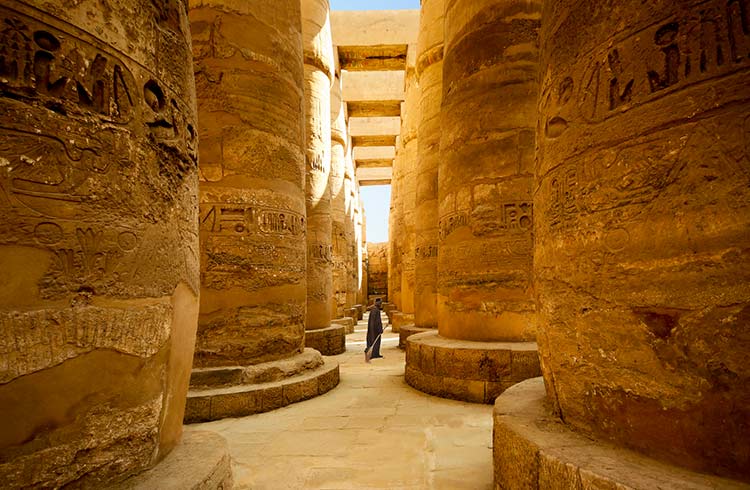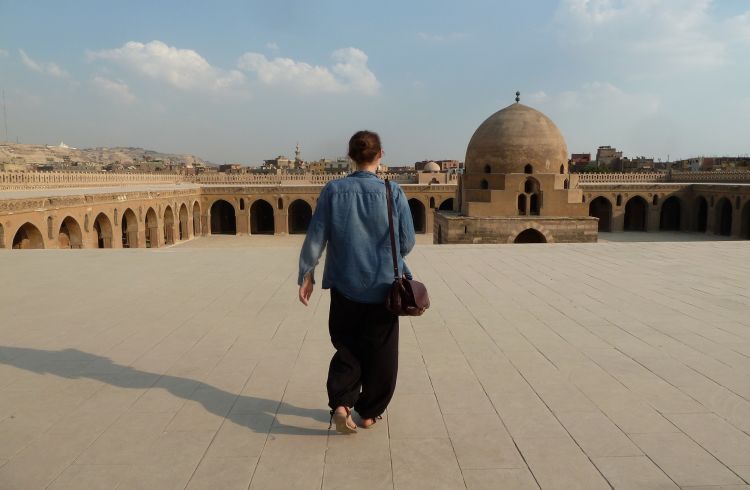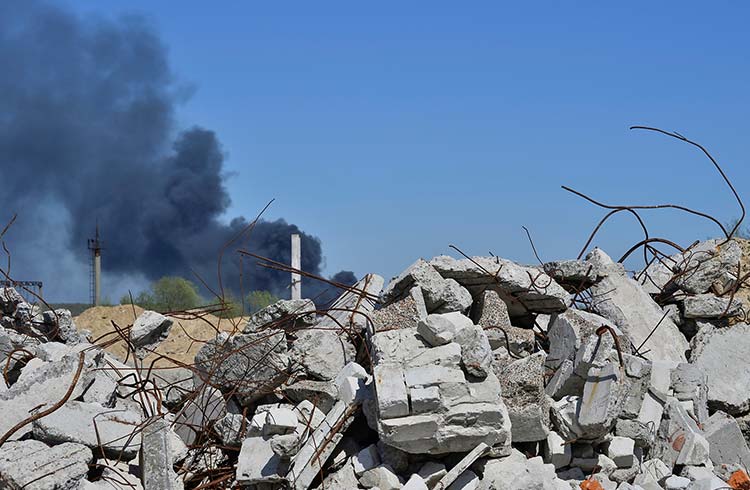Is Egypt Open for Tourism? Restrictions and Requirements
How are COVID-19 restrictions affecting travel to Egypt? Find out what to expect upon arrival, and which areas of Egypt are currently open to tourism.
 Photo © Getty Images/WitR
Photo © Getty Images/WitR
Coronavirus (COVID-19) travel restrictions in Egypt – updated 10 November 2021
Commercial flights and international tourism to Egypt have resumed from 1 July 2020.
All persons (including those who hold Egyptian nationality) arriving from overseas must have proof of one of the following:
- A full course of COVID-19 vaccination (completed at least 14 days prior to arrival in Egypt); or
- A negative PCR test (taken within 72 hours prior to departure).
Children under the age of 6 are exempt. Proof of COVID-19 recovery will not be accepted.
On 24 June, the Egyptian Ministry of Health announced that fully vaccinated individuals (except those from high-risk countries) are also exempt from taking a PCR test. However, we have seen conflicting information about this, and the web page for the US Embassy in Egypt does not mention the vaccination exemption.
- Passengers traveling from Japan, China, Thailand, North America, South America, Canada, London Heathrow, Paris and Frankfurt must have their PCR test conducted no more than 96 hours prior to flight departure (check with your airline).
- The medical certificate must be issued and stamped by an accredited laboratory, and indicate the type of sample taken for the swab, and must be written in Arabic or English. Travelers must present paper copies of the test results; digital copies will not be accepted.
- Foreign visitors arriving at airports in the coastal governorates Red Sea (Hurghada), South Sinai (Sharm El Sheikh), and Marsa Matrouh without a valid test result will undergo testing on arrival (at their own cost), and must quarantine until results are received.
- Travelers from India, Bangladesh, Pakistan, Bhutan, Myanmar, Nepal, Sri Lanka, Brazil, Latin America or Vietnam will need to take an ID Now COVID-19 test on arrival. If the test is positive, the traveler will undergo a PCR test at the airport and if positive, the traveler will be quarantined at a government-designated hospital.
- Arriving passengers will have their temperatures checked.
- Anyone that tests positive for COVID-19 while in Egypt is required to quarantine for 14 days.
- Everyone must fill out a Health Declaration.
- Foreign travelers must show proof of a valid health insurance policy
- Most foreign nationals require a visa. Apply online via Egypt's Online Visa portal.
Check with your airline for the latest information before departure.
Before you buy a travel insurance policy, check your government travel warnings and health advice – there may be no travel insurance cover for locations with a government travel ban or health advice against travel.
Local COVID-19 measures in place for Egypt
- It is mandatory to wear a mask on all public transit, in taxis, and in enclosed public spaces, and you may be denied entry to vehicles and public transport without one.
- Individuals who do not adhere to precautionary measures such as wearing a mask indoors may be subject to an immediate fine or prosecution.
- Hotels have resumed operations but must follow new health guidelines that include limits on capacity and hygiene standards
- There are restrictions on public gatherings. Businesses such as restaurants and cafes must operate at 50 percent capacity or less.
Rules and restrictions may be changed at short notice, including curfew hours which may be reimplemented if there is a spike in cases of COVID-19. It is important to stay up to date with local news and media, and follow the travel advice from your government.
Bus bombing near Grand Egyptian Museum - May 2019
On Sunday 19th May, a bus carrying ~25 tourists near the new Grand Egyptian Museum was hit by a roadside bomb blast that injured 16 people. This bomb blast is the second incident involving tourists in six months, including another tourist bus that was hit by a roadside bomb in December 2018 near the Giza Pyramid complex. Authorities have reported that the source of the explosion was from a remote IED (Improvised Explosive Device) inside a vehicle parked on the side of the road.
- Always exercise caution while traveling
- Be aware of your surroundings
- Carry your personal ID with you at all times
- Keep updated with local news and government travel advisory information if you are currently in Egypt.
Please check with authorities for more information and follow any official warnings. Failure to comply with directives from government authorities may result in you not being covered by travel insurance.
Tourist bus bombing at Giza Pyramids - December 2018
On December 28th, a bus carrying tourists near the Giza Pyramid complex was hit by a roadside bomb blast which killed an Egyptian tour guide, three Vietnamese foreign nationals and injured 11 others on board. This bomb blast has been the first deadly incident involving tourists in more than a year. Authorities have reported that the source of the explosion was from an IED (Improvised Explosive Device) found hidden in a wall at the incident location.
Always exercise caution while traveling, be aware of your surroundings and keep updated with local news and government travel advisory information if you are currently in Egypt.
Please check with authorities for more information and follow any official warnings. Failure to comply with directives from government authorities may result in you not being covered by travel insurance.
North Sinai terror attack - November 2017
Over 300 people were killed and 100 wounded by an ISIL-led bomb and gun attack at a mosque in Bir al-Abed, a city located in the north of the Sinai Peninsula during Friday afternoon prayers.
ISIL terrorists also used vehicles to block off escape routes and shot at ambulances that were arriving on the scene.
Australian and UK travel advisories have warned against travel to North Sinai as a result of this latest attack in addition to previous attacks on police and security forces in the region.
Pyramids attack - December 2017
On Friday 9th December, a bomb was exploded at the entrance to the tourist area housing the Great Pyramids in Giza.
The bomb was left in a rubbish bin at the park entrance when it detonated it killed six security staff and injured 3 more.
The security checkpoint is located in a middle-class neighborhood of Cairo and close to a government building.
radical Islamists have claimed responsibility.
Church attack - December 2017
Two days later a larger explosion killed 25 people attending mass at St Peter's church, close to the main Coptic cathedral St Mark's in central Cairo.
Sunday services had been moved to St Peter's while the main cathedral is being renovated. About 10% of Egyptians are Coptic Christians.
Radical Islamists also claimed responsibility for this attack.
Is Cairo safe?
It's important to check the government status of the area you are visiting – at the time of publication, the status for certain areas in Egypt sit at "Reconsider Your Need to Travel", which may in some circumstances have an impact on your coverage. The north-eastern corner of Egypt bordering Gaza is considered a "Do Not Travel" zone.
While statistically, you are more likely to end up in a car accident than being caught up in a terror-related incident, it's up to each individual to assess the level of risk they are prepared to take.
For some further perspective, check out our article on Travel and Terrorism.
Related articles
Simple and flexible travel insurance
You can buy at home or while traveling, and claim online from anywhere in the world. With 150+ adventure activities covered and 24/7 emergency assistance.
Get a quote


No Comments